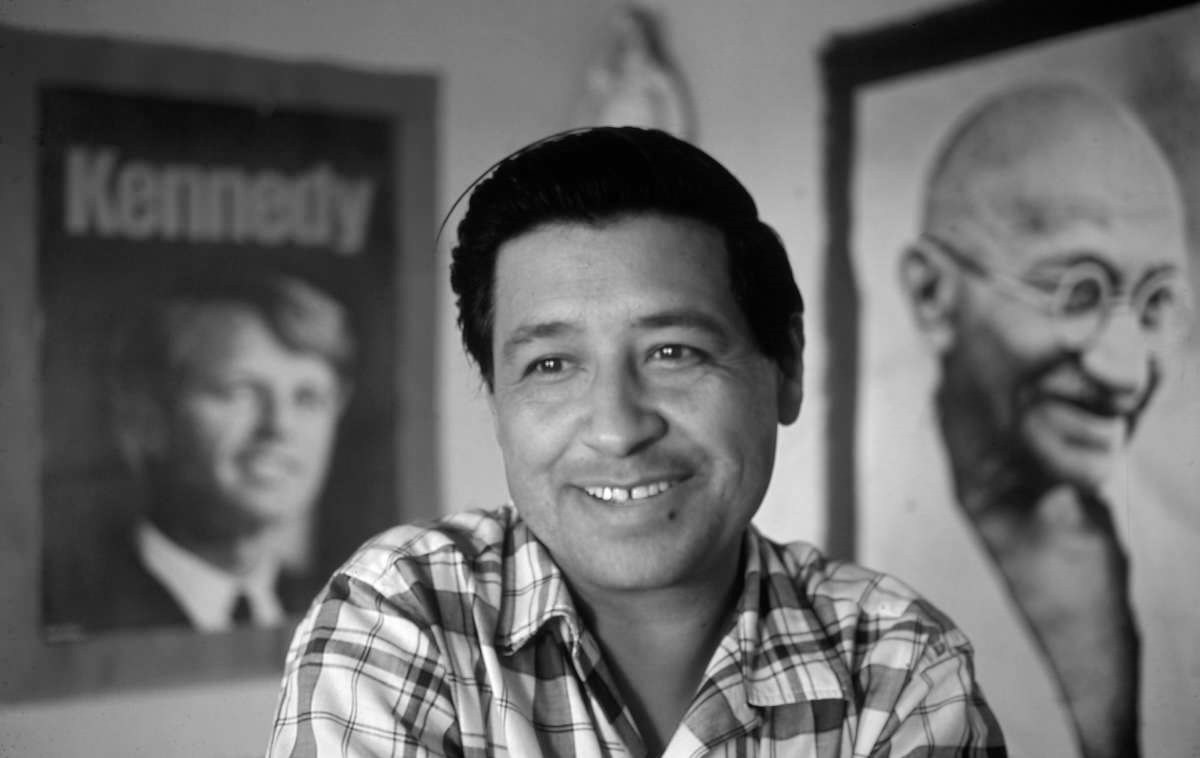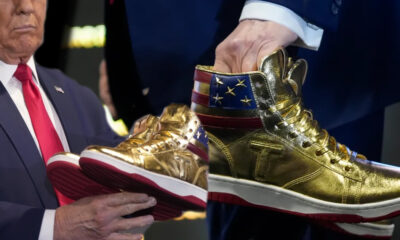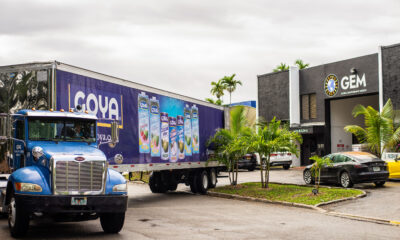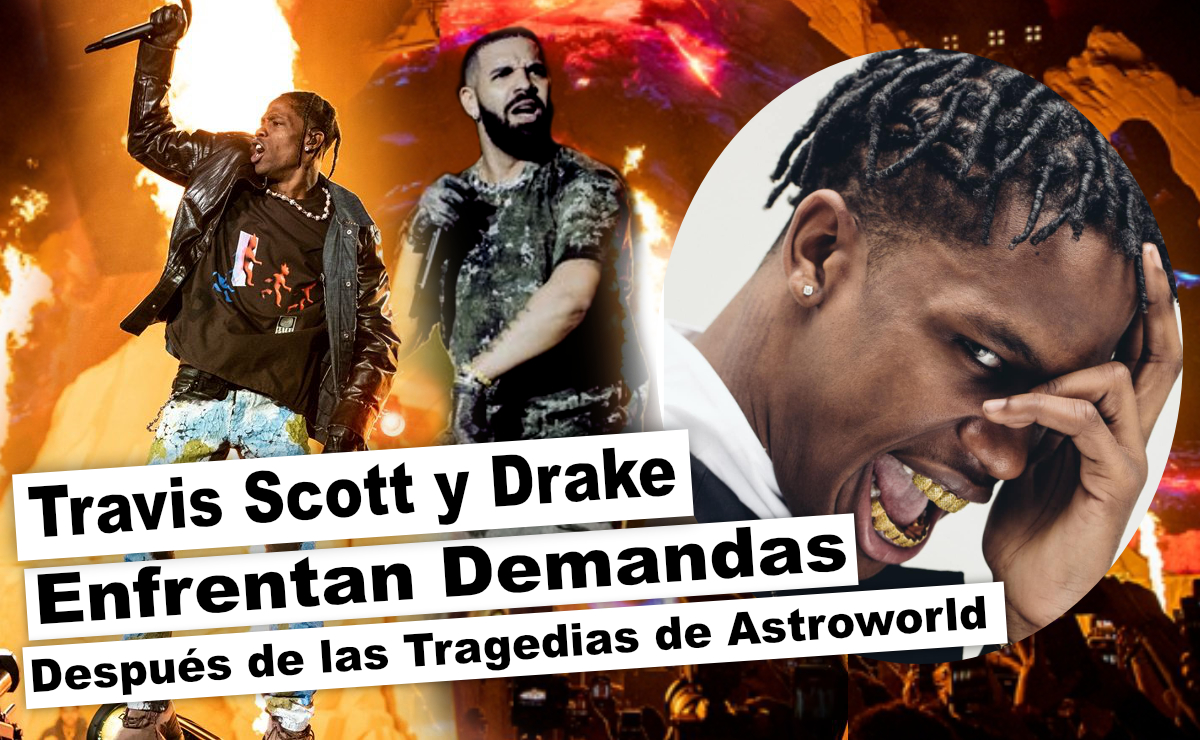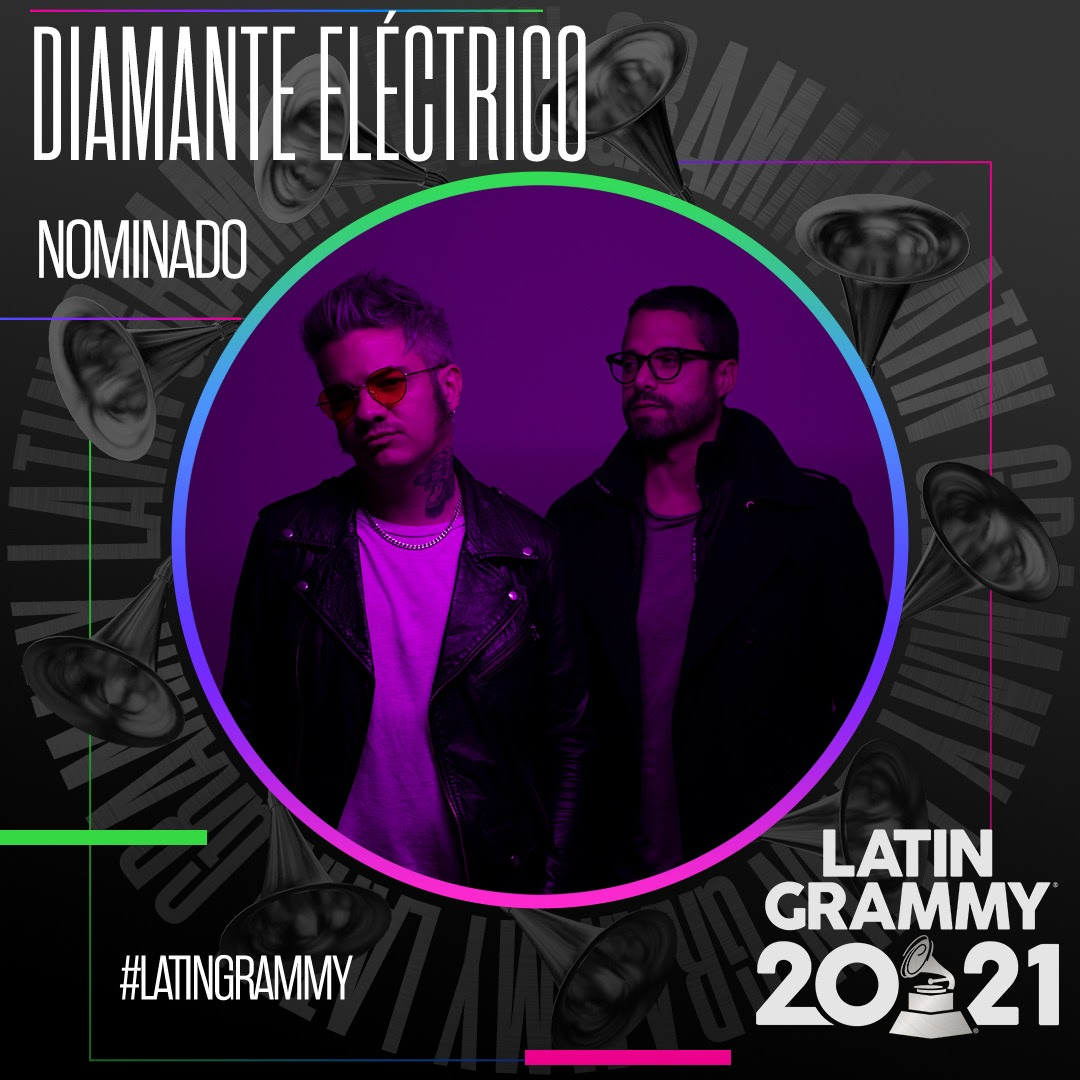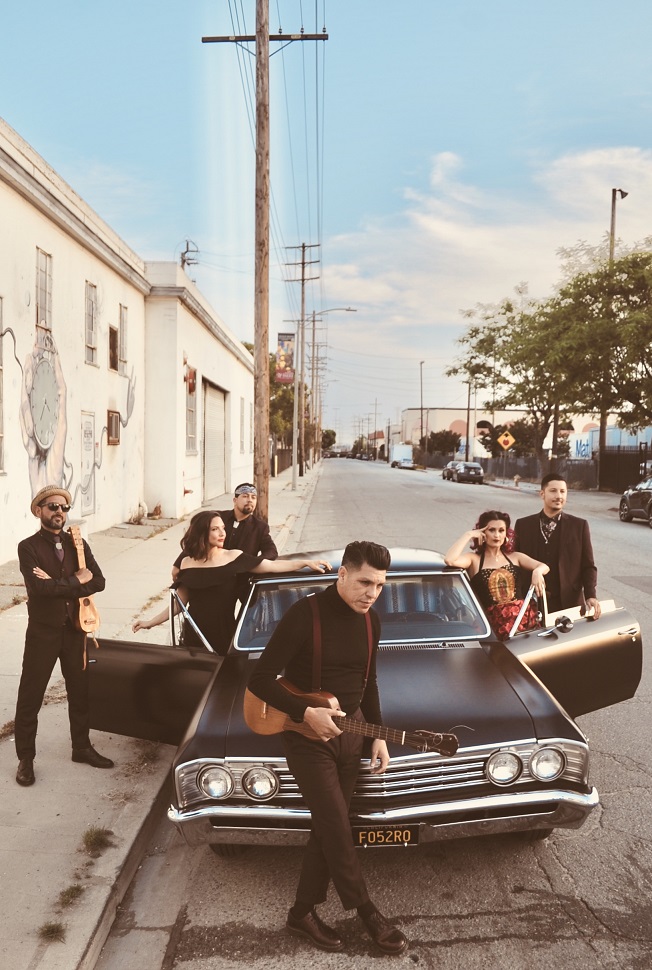Caption: Civil Rights Leader, Cesar Chavez, in his office in Delano, CA in 1968.
Cesar Chavez Foundation’s 50th anniversary to highlight efforts to get more Latinos registered and voting
With the presidential election increasingly degenerating into ugly appeals to prejudice against Latinos and immigrants, the Cesar Chavez Foundation is using its 2016 Legacy Awards Gala honoring the civil rights and farm labor leader on his March 31 birthday to partner with groups encouraging more Latinos to register and vote this year.
Recipients of this year’s Cesar Chavez Legacy Awards—U.S. Senator Dianne Feinstein, actor/author Mario Lopez and Voto Latino President & CEO Maria Teresa Kumar—are all leaders in the battle for immigrant rights and Latino empowerment. Senator Feinstein has been a champion of comprehensive immigration reform, having worked closely with the United Farm Workers on its efforts to offer immigrant farm workers relief from abuse. Mario Lopez is a role model whose career reflects his cultural pride and stand against bias. And Maria Teresa Kumar runs the leading nonpartisan organization empowering American Latino millennials by engaging them through civic media.
Los Angeles Mayor Eric Garcetti will be the keynote speaker at this year’s milestone celebration—entitled 50 Years of Justice, Opportunity and Change—highlighting Cesar Chavez’s legacy and the continuing influence of his life and work with contemporary Americans.
The Cesar Chavez Foundation will use the March 31 gala at the Biltmore Hotel in downtown Los Angeles to highlight its message to Latinos across America: Participate in the political process. The Foundation is working with Voto Latino and Univision Communication’s “Vote For Your America” campaign to increase Latino voter participation. The Cesar Chavez Foundation is extending voter participation messages through its educational radio network, its housing communities and its social media channels.
“It is paramount for our youth to have a voice in the political process and voter registration is a critical first step,” said Voto Latino head Maria Teresa Kumar. “Voto Latino has registered more than 250,000 new voters through digital campaigns, pop culture and grassroots efforts to empower Latinos to be agents of change and to shape the country to reflect the values of our community. Cesar Chavez, as the father of Latinos’ political empowerment, is a model who Voto Latino tries to emulate everyday by giving our community agency to find their voice. Our strength is in each other. Si Se Puede!”
“It is fitting that this year’s honorees embody Cesar Chavez’s core values of self-determination and commitment to community—and help us fulfill my father’s legacy by getting more of our people to take part in the civic and political process,” said Paul Chavez, president of the foundation and Cesar Chavez’s son. “The Chavez Foundation helps encourage young Latinos to get involved in the political process because of Cesar Chavez’scentral role in inspiring millions of Latinos and other Americans to social and political activism. In his now landmark 1984 address to the Commonwealth Club, Chavez said,
‘The union’s survival—its very existence—sent out a signal to all Hispanics that we were fighting for our dignity, that we were challenging and overcoming injustice, that we were empowering the least educated among us—the poorest among us. The message was clear: if it could happen in the fields, it could happen anywhere—in the cities, in the courts, in the city councils, in the state legislatures. I didn’t really appreciate it at the time, but the coming of our union signaled the start of great changes among Hispanics that are only now beginning to be seen.'”
Chavez’s legacy is especially topical this year that marks key 50-year historic milestones, including the anniversary of the California grape strikers’ 340-mile march from Delano to Sacramento; the 1966 strike by melon pickers in South Texas’ Rio Grande Valley and their march to the state Capitol in Austin; and the founding of what today is the Cesar Chavez Foundation, which addresses crippling dilemmas Latinos face in the community as well as the workplace.
SOURCE Cesar Chavez Foundation
